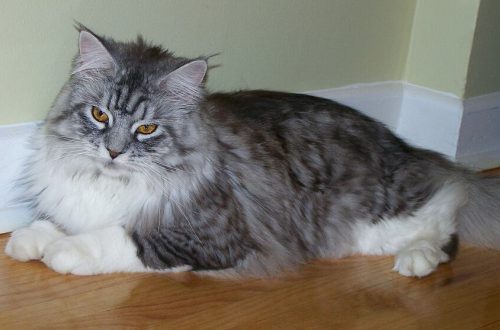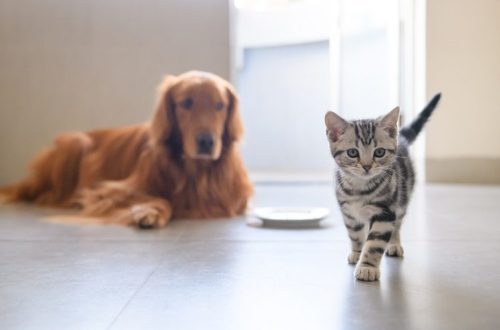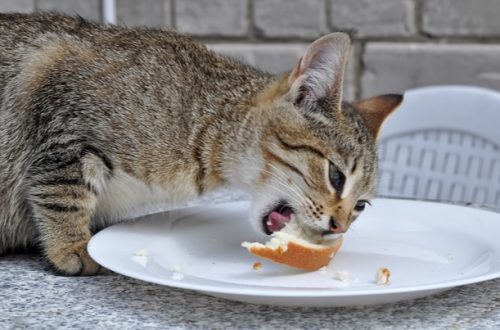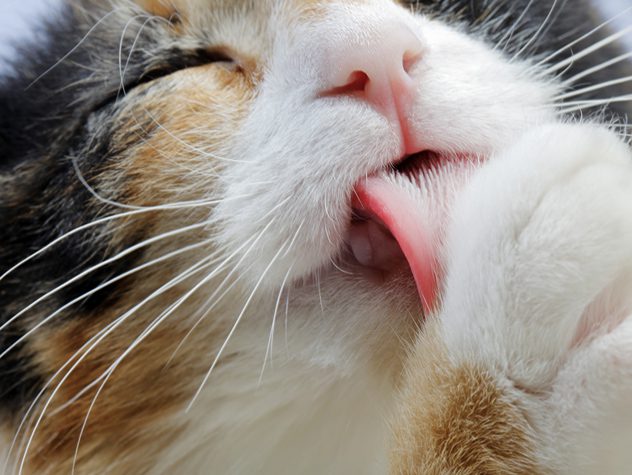
Why do cats lick themselves?
You may find your cat licking its paws or chewing on itself from time to time. Why do cats take care of their hygiene? Grooming is the calling card for most cats and starts right after birth. Mothers lick their kittens to clean them, induce them to urinate, and encourage them to suckle milk to provide comfort and strengthen bonding. At four weeks old, kittens begin grooming themselves and shortly thereafter, their mother and siblings. This grooming for themselves and others (called allogrooming) continues into adulthood.
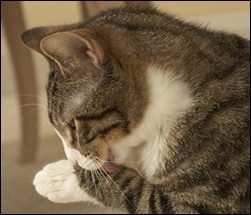
All right
Cats are flexible, fast, and they have everything to take care of themselves. Everything from the rough surface of the tongue to the sharp teeth, ridge-like hind legs and front paws are perfectly suited to maintaining her personal hygiene. A cat can even use its front paws to stimulate the tiny sebaceous glands on its head. Sebum is a cat’s “perfume” and is distributed throughout the body.
Why do cats groom themselves?
Cats groom themselves not only to keep clean, but also for a number of other health-related reasons:
- To regulate body temperature.
- To keep your coat clean and smooth by distributing natural skin oils.
- To stimulate blood circulation.
- To cool down by evaporation of saliva.
- To get rid of parasites, infections and allergies.
- To prevent the appearance of hairballs.
- Displaced Behavior: If a cat feels embarrassed, anxious, or in a dangerous situation, she licks herself to calm herself.
obsessive licking
Is your cat constantly licking, biting, or chewing on itself? Keep in mind that most cats devote 30 to 50 percent of their time to grooming. But if you’re starting to notice compulsive grooming, hair loss, or skin damage, it might be time to visit your veterinarian.
Obsessive licking may be a consequence of the disease. If a cat is constantly biting and licking its skin, it may indicate a neurological disorder, flea infestation, parasite infestation, or a mental disorder. Stress often causes compulsive disorders in cats, such as excessive self-grooming at an early age. Events such as a move, a home remodel, a new pet or family member, separation anxiety, and a lack of encouragement can easily trigger this behavior. And since licking is soothing and soothing to a cat, she will want to do it every time she encounters a dangerous situation. If such behavior is ignored, it can lead to self-harm. For example, psychogenic alopecia, or hair pulling, is a common condition that causes hair thinning, baldness, and skin infections.
Insufficient self-care
Regular self-grooming will help your pet look and feel great, but if she gets sick, she may stop taking care of herself. This happens with arthritis, pain or problems with the teeth. Cats that are taken from their mothers too early may simply not know how to properly care for themselves.
Watch for these warning signs of insufficient self-care:
- Rough or greasy coat.
- Small mats on the body or tail.
- Traces of urine or feces on the paws.
- Unpleasant smell.
- Food particles on the muzzle or breast after eating.
To give your pet an incentive to start grooming herself, start combing her daily. Combing stimulates the skin and blood circulation, rids the animal of fleas and ticks. When she starts to lick, try not to interrupt her. This is important for your cat, so let her get the most out of it.



